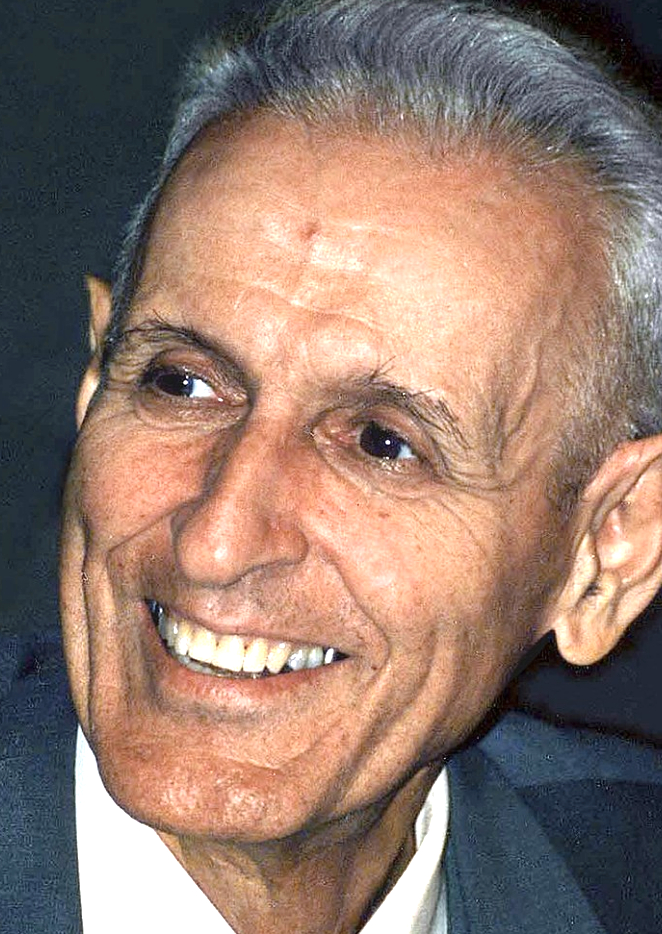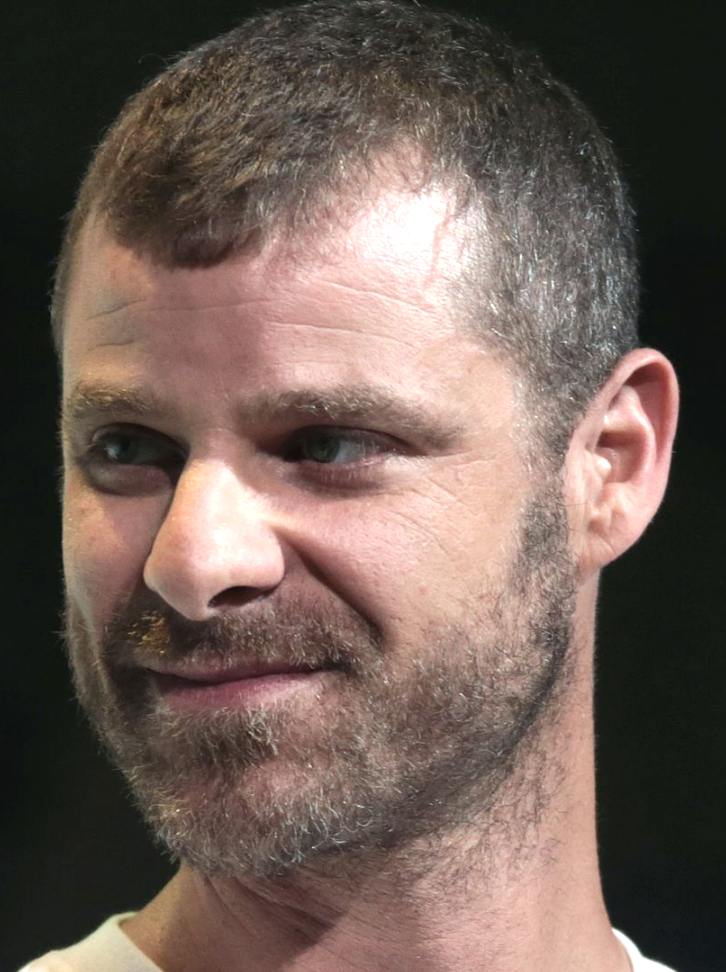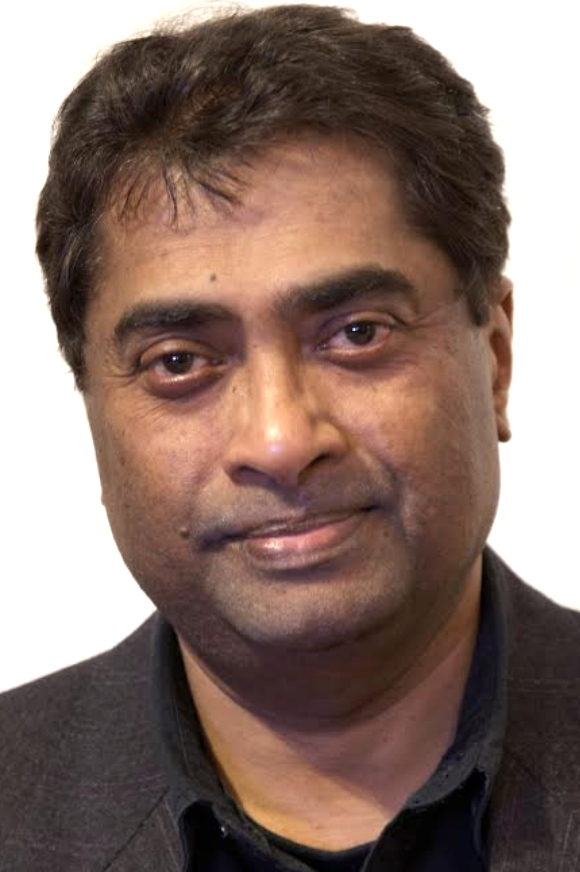May 26
Jack Kevorkian

On this date in 1928, Murad Kevorkian, later known as Jack, was born to Armenian immigrants in Pontiac, Mich. “My parents never foisted religion on me. My father never was religious much. My mother was — the old country religion. But not fanatic. But I never believed in God. I never believed in Santa Claus.” (Interview with Neil Cavuto on Fox News, Sept. 2, 2009.)
He earned his M.D. from the University of Michigan in 1952 and later specialized in pathology. He wrote a series of articles in the 1980s for the German journal Medicine and Law, detailing his reasoning on the ethics of euthanasia. His first known assisted suicide occurred in 1990, and the state of Michigan revoked his medical license a year later as a result. Believing that the right to die was not a crime, Kevorkian assisted in the pain-free suicides of more than 130 people with terminal illnesses.
He spent eight years in prison (out of a 10- to 25-year sentence) after being convicted of second-degree murder for one of these suicides. He was released on parole in 2007, on the condition he would not help anyone else commit suicide.
Kevorkian maintained that his harshest critics were “religious fanatics or nuts.” (“Kevorkian Speaks After His Release From Prison,” N.Y. Times, June 4, 2007.) In his keynote address at the 1990 Freedom From Religion Foundation annual convention, Kevorkian said, “Religion is telling law what to do, and law is telling doctors what to do. Religion dictates to law, and law dictates to ethics. No wonder we have problems. That’s insanity!”
He described the history of euthanasia and abortion as standard procedures in the secular medical world until Christianity injected its influence on the profession several centuries later. He described this shift as “the origin of all the crises we’re having.” In an interview on FOX News, when asked how he wanted to be remembered, Kevorkian responded: “Doesn’t matter. Doesn’t matter at all. When I’m dead, nothing matters.” (Sept. 2, 2009)
He told the Jackson Citizen in 1990: “My aim is to establish a rational policy of planned death. … We have no planned death. We have no policy, and it’s not rational. I want to fight suffering and eliminate it.” (D. 2011)
PHOTO: Kevorkian at the National Press Club in 1996; Kingkong photo under CC 2.0.
“If a doctor has a certain philosophic principle, religion or otherwise, that limits what he or she can do or say for the benefit of the patient, then he’s not a full doctor. … A real doctor could divorce professional life from spiritual life.”
— Kevorkian, keynote address to FFRF's national convention (Oct. 6, 1990)
Matt Stone

On this date in 1971, Matthew Richard Stone was born in Houston, Texas. Stone was raised in the Denver area before moving to Littleton, Colo., where he graduated from high school. Stone attended the University of Colorado at Boulder, where he earned a degree in mathematics and studied film. While in film school at Boulder, he met Trey Parker, his longtime collaborator.
They collaborated on various projects, including an animated short titled “The Spirit of Christmas” (1996), in which Santa Claus and Jesus fight about the true meaning of Christmas (the answer, by the way, is that the true meaning of Christmas is presents, not fighting).
This short led to a deal with Comedy Central in 1997 to make “South Park,” an animated show starring four third-graders: Kyle, Stan, Cartman and Kenny (characters first explored in the short), which is frequently satirical and often employs crude humor. Stone and Parker do most of the male characters’ voices themselves. The show is set in the fictional town of South Park, Colorado.
Parker and Stone made a movie in 1999 titled “South Park: Bigger, Longer and Uncut.” A song from the movie, “Blame Canada,” was nominated for an Oscar for Best Original Song. “South Park” has been nominated for several Emmys and has received five, as of 2019 (its 23rd season).
Through “South Park” and other projects, Stone and Parker have frequently satirized religion. The 2005 “Trapped in the Closet” episode (link is U.S. only) satirizes Scientology and reveals some of its secret beliefs. A more frequent subject for their humor is Mormonism. Stone and Parker both grew up in Colorado, where they knew a lot of Mormons, and have often stated in interviews that they have largely positive feelings about Mormonism.
That did not stop them from poking holes in the story of Joseph Smith’s founding of it in the 2003 “All About Mormons” episode in which a Mormon family comes to town. The new kid Gary confronts the main characters at the end of the episode, saying, “Maybe us Mormons do believe in crazy stories that make absolutely no sense, and maybe Joseph Smith did make it all up. But I have a great life and a great family, and I have the Book of Mormon to thank for that.”
In 2011 the musical “The Book of Mormon,” created by Stone and Parker in collaboration with composer and lyricist Robert Lopez, opened on Broadway. It tells the irreverent story of two missionaries in Uganda and was nominated for 14 Tony Awards. It won nine, including Best Musical, Best Original Score and Best Book of a Musical.
Stone married Angela Howard, a Comedy Central production executive in 2008. They have two children.
PHOTO: Stone at the 2016 San Diego Comic-Con; Gage Skidmore photo under CC 3.0.
"We're essentially atheists. I mean, I am; Trey I don’t want to speak for. But coming from that point of view, we're atheists who don't hate religion, who are kind of fascinated by it and kind of admire it. [We thought] ‘What would that look like? What would an atheist love letter to religion look like?’ "
— Stone to New York magazine, on the musical "The Book of Mormon" (March 11, 2011)
Sanal Edamaraku

On this date in 1955, secular activist and author Sanal Edamaruku was born in Thodupuzha, India, to freethinking parents who were raised as Hindu and Christian before embracing nonbelief. In 1960 they filled out Sanal’s school admission form with “no religion” and “no caste,” making him the first-ever officially registered nonbeliever in India. He earned a master’s in political science in 1977 from the University of Kerala and an M.Phil. in 1980 from Jawaharlal Nehru University.
Edamaruku became active in the Indian Rationalist Association as a teen and served as general secretary starting in 1983 and succeeding his father, Joseph Edamaraku, as its president in 2005. He edited its publication Modern Freethinker and wrote numerous articles and several books dealing with rational thought and debunking paranormal claims. He founded Rationalist International in 1995 and serves as its president. Dubbed by some as the “Indian James Randi,” Edamaruku publicly criticized frauds perpetrated by Christians and Hindus and so-called Indian godmen.
In 1994-95 he and his team traveled through hundreds of Indian villages and cities, explaining how “miracle-mongers … exploit the ignorance of common people about certain natural phenomena to fool the gullible and win their unquestioning devotion.” A British TV crew documented the campaign in the film “Guru Busters.” In 2012 he investigated the “miracle” of a crucifix at a Mumbai Catholic church dripping “holy” water. He and an engineer colleague traced it to an overflowing drain connected to a toilet pipe — not a miracle, just bad plumbing.
Catholic groups filed blasphemy complaints that led to Edamaruku leaving India for Finland later in the year to avoid possible imprisonment and death threats. He left behind his daughter and a grandchild. In 2013 a rationalist colleague was murdered, which definitely precluded Edamaruku’s return. He was arrested in Poland in March 2025 after arriving in Warsaw to give a speech. FFRF decried the arrest.
Randi and Richard Dawkins have called Edamaruku a rationalist hero. He’s a fellow of the U.S. Committee for Skeptical Inquiry and an honorary associate of the Rationalist Association of the UK. He’s appeared in The New York Times, Newsweek, Time, Asia Week, The Guardian and the Washington Post and on TV channels like Discovery, BBC and CNN. Hear his interview here with FFRF’s Freethought Radio, starting at 25:00 (June 13, 2019).
PHOTO: Edamaraku in Helsinki in 2013. Public domain photo by Robert Brotherus.
“Rationalists do an important job in a society such as ours by liberating millions from irrational fears. They are helping build a modern, civilized, responsible India.They are aiming to create a society where people can rise above religion, caste and gender and become more humane.”
— Edamaruku blog, SanalEdamaruku.com (Sept. 6, 2018)
Sally Ride

On this date in 1951, astronaut Sally Kristen Ride was born in Los Angeles, the firstborn child of Carol (née Anderson) and Dale Ride. She had one sibling, Karen, known as “Bear” throughout her life. Both parents were elders in the Presbyterian Church. Her mother worked as a volunteer counselor at a women’s correctional facility and taught Sunday school. Her father became a political science professor at Santa Monica College after his military service.
After high school, she enrolled at Swarthmore College in Pennsylvania on a full scholarship. She played field hockey, golf and, most competitively, tennis. After three semesters she transferred to UCLA, where she was the only female physics major.
Dropping her goal of playing professional tennis, she transferred to Stanford University, graduating in 1973 with a B.S. in physics and a B.A. in English literature. She then earned an M.S. in physics and a doctorate in philosophy in 1978. Astrophysics and free-electron lasers were her areas of study. She wrote her doctoral dissertation on “the interaction of X-rays with the interstellar medium.”
Ride’s application to become an astronaut was one of 8,079 received, and in 1978 she was chosen by NASA with five other women to join the group of 35 new recruits. After serving as a ground-based mission specialist on two launches, at age 32 she became the first American woman to fly into space aboard the Space Shuttle Challenger in 1983. Counting her second Challenger flight in 1984, she spent 343 hours in space.
Asked by Gloria Steinem in 1983 about “the dumbest kinds of questions you’ve been asked to date,” Ride said with a laugh: “Without a doubt, I think the worst question that I’ve gotten was whether I cried when we got malfunctions in the simulator. No.” (Steinem’s ABC-TV series “In Conversation With…”) She also said in the interview that “I wouldn’t even say that I’m spiritual. I honestly don’t think about religion at all.”
“Our parents taught us to explore, and we did,” her sister Bear would say later. “Sally studied science and I went to seminary. She became an astronaut and I was ordained as a Presbyterian minister. … Sally’s signature statement was ‘Reach for the Stars.’ Surely she did this, and she blazed a trail for all the rest of us.” (NBC News, July 24, 2012)
After dating astronaut Robert “Hoot” Gibson, in 1982 she married Steven Hawley, a member of her group of astronaut recruits. Bear Ride and Hawley’s minister father officiated. Ride and Hawley divorced in 1987.
Ride’s scheduled third flight was canceled when tragedy struck and the Space Shuttle Challenger blew up 73 seconds after launch on Jan. 28, 1986. All seven aboard died, including teacher-in-space Christa McAuliffe and astronaut Judith Resnik, who in 1984 was the second American woman in space.
Ride was appointed to the Rogers Commission investigating the disaster and was critical of NASA’s risk-assessment processes. She and Richard Feynman were instrumental in doggedly pursuing and helping reveal the cause of the explosion, the leaking O-ring seals on the booster rocket that let highly flammable gases escape.
After leaving NASA, she joined the physics faculty at the University of California-San Diego and led public outreach programs in cooperation with the Jet Propulsion Laboratory in Pasadena. She served in 1999-2000 as president of Space.com, a company that aggregated news online about science and space. She then became president and CEO of Sally Ride Science, which she co-founded with Tam O’Shaughnessy to create programs and publications for upper elementary and middle school students, with a particular focus on girls.
After Ride was diagnosed in 2011 with pancreatic cancer, she and O’Shaughnessy registered their domestic partnership. She died at age 61 at home in 2012, with her cremains buried next to her father in a Santa Monica cemetery. Her obituary publicly revealed for the first time that O’Shaughnessy had been her partner for 27 years, which made Ride the first known LGBTQ+ astronaut.
Bear Ride confirmed the relationship, saying her sister chose to keep her personal life private, including her cancer and 17 months of debilitating treatments. “Sally lived her life to the fullest with boundless energy, curiosity, intelligence, passion, joy and love. Her integrity was absolute; her spirit was immeasurable; her approach to life was fearless. Sally died the same way she lived: without fear.” (Ibid., NBC News) (D. 2012)
PHOTO: Ride in 1984.
“Quite a few people have asked me since I've come back whether I've found religion in space or whether I had any mystical experiences while I was up there. No."
— Ride interview with Gloria Steinem on "In Conversation With..." (ABC-TV, 1983)
